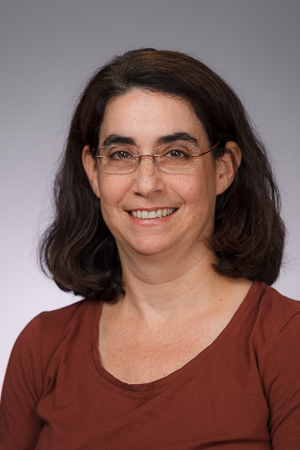Faculty Profile
Karen Weinstein
Professor of Anthropology (2001)Contact Information
Denny Hall
717-245-1281
Bio
Karen Weinstein is a biological anthropologist with interests in human variation and adaptations to environmental stress, human osteology, human evolution, nutritional anthropology, and comparative primate skeletal biology. She has done anthropological fieldwork and museum data collection throughout the United States, Peru, Chile, Japan, the Cook Islands, the United Kingdom, Puerto Rico, and Tanzania.
Education
- B.A., Washington University, 1991
- M.A., University of Illinois at Chicago, 1994
- Ph.D., University of Florida, 2001
2025-2026 Academic Year
Fall 2025
ANTH 100 Intro to Biological Anthro
This course provides a comprehensive introduction to the field of biological anthropology. We will examine the development of evolutionary theory. We will then apply evolutionary theory to understand principles of inheritance, familial and population genetics in humans, human biological diversity and adaptations to different environments, behavioral and ecological diversity in nonhuman primates, and the analysis of the human skeleton and fossil record to understand the origin and evolution of the human family.
Three hours classroom and three hours laboratory a week. Offered three semesters over a two-year period.
ANTH 400 Senior Colloquium
Offered every fall semester, senior anthropology majors will meet to learn about professional career opportunities in anthropology as well as a write a research paper that incorporates primary sources in anthropological writing and/or original anthropological scholarship involving fieldwork or laboratory research.Prerequisite: Research in Anthropology course.
Spring 2026
ANTH 227 Forensic Anthropology
Forensic anthropology is a specialized field within biological anthropology that applies methods in skeletal biology, bioarchaeology and forensic sciences to the analysis of human skeletal remains in medico-legal settings. This course introduces the field of forensic anthropology by examining underlying theory and applied techniques used to identify human skeletal remains. Students will learn the bones of the skeleton, how to create a biological profile of an individual (reconstruct age, sex, ancestry, stature), how to identify trauma and pathology, and how to estimate time since death and possible causes of death. We will also examine the various contexts in which forensic anthropologists work to recover and analyze human remains, including crime scene investigations, human rights investigations, and mass disasters. Ethical responsibilities of forensic anthropologists will be at the forefront of our study.
ANTH 331 Human Evolution
Cross-listed with ARCH 331-01.
ARCH 331 Human Evolution
Cross-listed with ANTH 331-01.
ANTH 495 Senior Thesis
Senior anthropology majors who qualify with a cumulative GPA of 3.7 or higher by the end of the junior year and are approved by the department as honors candidates can take this course during the spring semester of their senior year. This course involves writing a senior thesis based on original research such as fieldwork or laboratory research substantively beyond what students complete in ANTH 400, and the thesis is the primary consideration for departmental honors.Prerequisite: ANTH 400.
